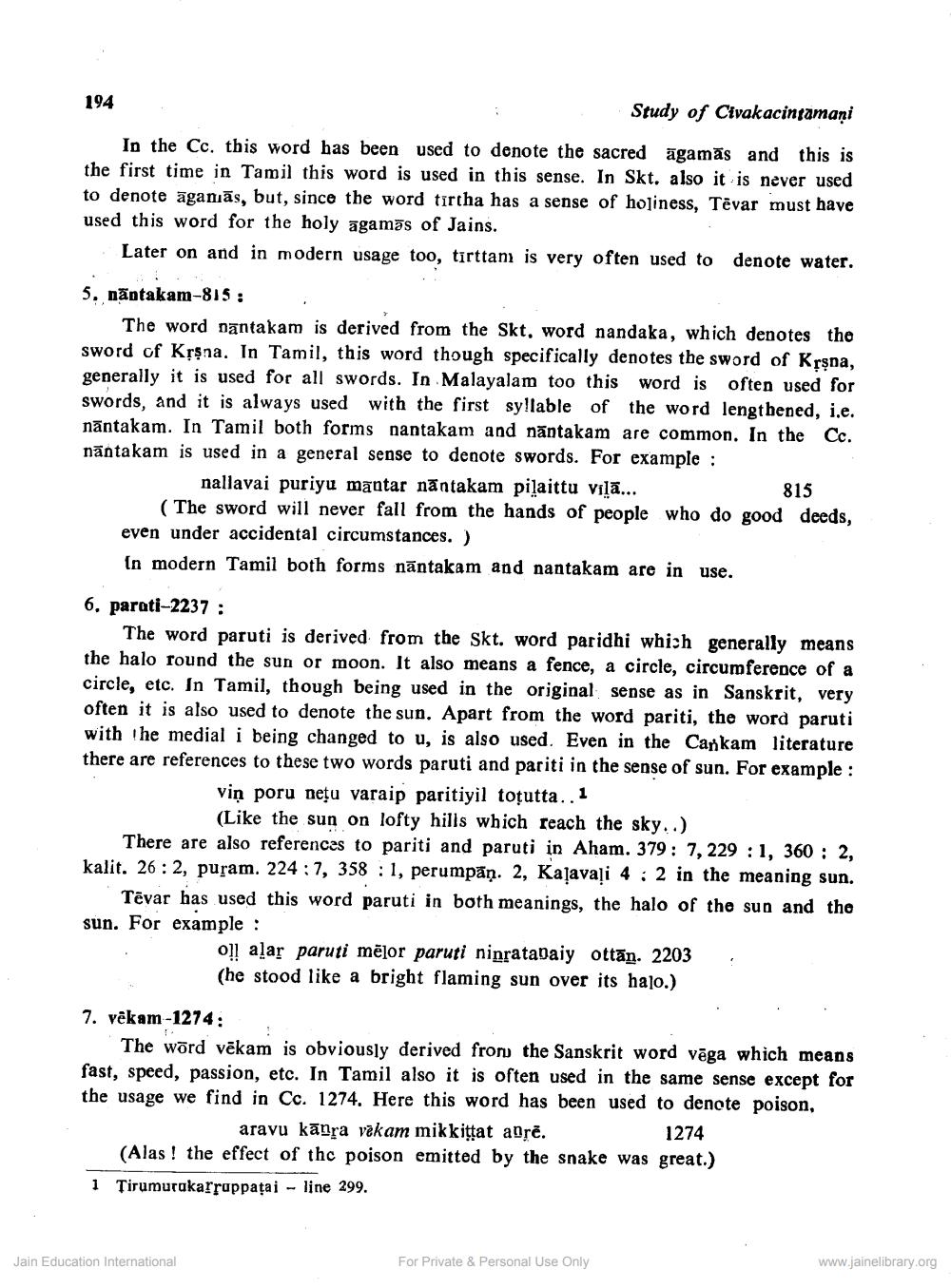________________
194
Study of Civakacintamani
In the Cc. this word has been used to denote the sacred āgamās and this is the first time in Tamil this word is used in this sense. In Skt. also it is never used to denote äganıās, but, since the word tirtha has a sense of holiness, Tēvar must have used this word for the holy agamās of Jains.
Later on and in modern usage too, tirttan is very often used to denote water.
5. nântakam-815 ; ,
The word nantakam is derived from the Skt, word nandaka, which denotes the sword of Krsna. In Tamil, this word though specifically denotes the sword of Krşpa, generally it is used for all swords. In Malayalam too this word is often used for swords, and it is always used with the first syllable of the word lengthened, i.e. nāntakam. In Tamil both forms nantakam and nāntakam are common. In the Cc. nāntakam is used in a general sense to denote swords. For example : nallavai puriyu mantar nāntakam pilaittu vilā...
815 ( The sword will never fall from the hands of people who do good deeds, even under accidental circumstances. ) in modern Tamil both forms nāntakam and nantakam are in use.
6. parati-2237 :
The word paruti is derived from the Skt. word paridhi which generally means the halo round the sun or moon. It also means a fence, a circle, circumference of a circle, etc. In Tamil, though being used in the original sense as in Sanskrit, very often it is also used to denote the sun. Apart from the word pariti, the word paruti with the medial i being changed to u, is also used. Even in the Cankam literature there are references to these two words paruti and pariti in the sense of sun. For example :
vin poru negu varaip paritiyil toțutta. . 1
(Like the sun on lofty hills which reach the sky..) There are also references to pariti and paruti in Aham. 379: 7,229 : 1, 360 : 2, kalit. 26: 2, puram. 224 : 7, 358 : 1, perumpān. 2, Kajavali 4 : 2 in the meaning sun.
Tēvar has used this word paruti in both meanings, the halo of the sun and the sun. For example :
0]] alar paruti mēlor paruti ninratapaiyottān. 2203 (he stood like a bright flaming sun over its halo.)
7. vekam-1274;
The word vēkam is obviously derived from the Sanskrit word vēga which means fast, speed, passion, etc. In Tamil also it is often used in the same sense except for the usage we find in Cc. 1274. Here this word has been used to denote poison, aravu kānra vēkam mikkittat alsē.
1274 (Alas! the effect of thc poison emitted by the snake was great.) 1 Tirumurakarsappațai - line 299.
Jain Education International
www.jainelibrary.org
For Private & Personal Use Only




